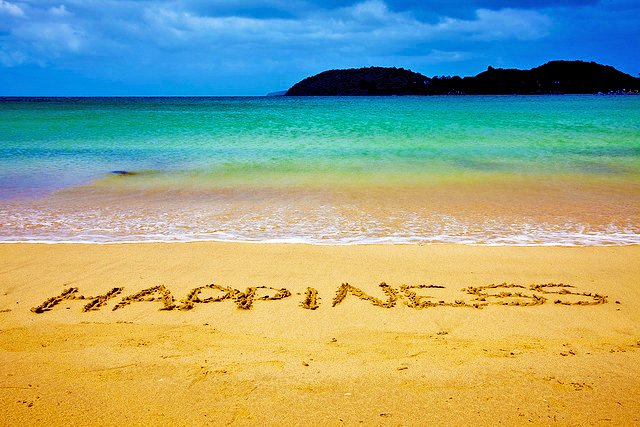The Philosophy of Happiness
The Philosophy of Happiness

Image Source
Since the early days of Western idea, philosophers have fretted about the idea of happiness. One of the most earliest to pose the question 'what is happiness?' was Aristotle, who, in a way run of the mill of philosophers, before giving an answer demanded making a refinement between two unique inquiries.
His initially question was what was implied by the word happiness or rather, its antiquated Greek identical eudaimonia. His second inquiry was the place happiness was to be discovered, in other words, would could it be that fulfills us genuinely. Sensibly enough he felt that it was vain to attempt to answer the second inquiry without having offered thought to the first.
The definition that he offers is that happiness is the incomparable great that provisions the reason, and measures the esteem, of all human movement and endeavoring. It is for happiness he composed that we as a whole do everything else we do. This appears an exceptionally clearing articulation: most likely it is unrealistic to recommend that each human activity is unequivocally gone for some single objective.
The proposal is conflicting with things that Aristotle says somewhere else. He doesn't appear to wish to preclude the likelihood of hasty activities accomplished for no particular reason with no reference to one's long haul happiness. What he implies rather is that on the off chance that you design your life and any sensible individual, he considers, should have an arrangement of life, in any event as an arrangement of needs, your top need, you're overall objective, will indicate what you take to be a beneficial life, and in this way what you mean by happiness.
For sure, in the light of what Aristotle says, we may offer advantageous life as the most fitting interpretation of his statement eudaimonia. Be that as it may, we will keep on using the customary interpretation happiness, where fundamental qualifying it as 'Aristotelian happiness'. Aristotle was very much aware that human creatures may have the most shifted and strange ideas of what makes them happy.
In any case, whatever they present as their definitive aspiration, it must, he considers, as an issue of rationale, breeze through specific tests in the event that it is really to consider happiness. For there are two components, he keeps up, that are incorporated with the very idea of happiness. One is that it must be an end instead of a methods. We may do different things for happiness, however we can't be happy as a way to some other objective.
You may discover, maybe, that being happy encourages you to profit, and therefore you steadfastly embrace a chipper temper. In any case, that just shows, Aristotle would state, that brightness is something else from happiness, and if your definitive point is to profit for its own purpose, what that demonstrates is that you trust that happiness is to be found in wealth. Happiness, he demands, is constantly looked for its own purpose and never for whatever else.

Image Source
The second implicit element of happiness is that is must act naturally adequate: that is, it must be some great, or set of merchandise, that in itself makes life worth living. One's life can't be really happy if there is something missing that is a basic element of an advantageous presence. Also, a happy life should, so far as human nature permits, be insusceptible to misfortune; generally, the consistent dread of losing one's happiness will lessen that happiness itself. So happiness, Aristotle finishes up, must have the properties of freedom and steadiness.
On the premise of these definitional elements of the idea of happiness, Aristotle was in a position to proceed onward to his second inquiry: in what does happiness comprise? What kind of life is really the most beneficial? A few things can be discounted from the begin. There are a few events in life, similar to ailment and torment, which make individuals need to surrender life. Plainly these are not what makes life worth living.
There are the delights and experiences of youth, these can't be the most decision commendable things in life since nobody in his correct personality would be a tyke yet again. In grown-up life there are things that we do just as unfortunate obligation; we go to war, for example, with a specific end goal to bring peace. Unmistakably these can't, in themselves, be what makes life worth living.
On the off chance that life is to be worth living it should most likely be for something that is an end in itself. One such end is delight. The joys of sustenance and drink and sex Aristotle views as, all alone, excessively brutish, making it impossible to be a fitting end for human life. On the off chance that we join them with tasteful and scholarly joys then we discover an objective that has been truly sought after by individuals of criticalness.
Others incline toward a life of prudent open activity, the life of a genuine, dislike the false government officials, who are simply after cash or power. There is the life of logical consideration, as exemplified by the Athenian savant Anaxagoras, who when inquired as to why one should be conceived instead of not answered 'to respect the sky and the request of the universe'.
Having removed various other competitor lives, Aristotle made due with a short rundown of three: a life of joy, a life of governmental issues, and a life of study. The quest for riches was discounted energetically toward the begin of the request. Cash is just tantamount to what it can purchase. It is how somebody spends his cash that demonstrates to us where he truly supposes happiness lies: does he spend it on extravagance, for example, or does he utilize it to increase political power, or offer it to those less fortunate?
What was Aristotle's own decision between the three sorts of life on his short rundown? There is no single response to this inquiry: Aristotle composed more than one treatise on happiness, and he gave distinctive records in various treatises. In any case, in every one of them, we are offered a meaning of happiness as action as per prudence, in other words, doing admirably what's happening with worth and what we are great at.

Image Source
Aristotle's definition gets from a thought of the capacity or trademark movement of human creatures. Man must have a capacity, the Nicomachean Ethics contends, on the grounds that specific sorts of men have a capacity, and parts and organs of human creatures do in like manner. What is this capacity? Not development and sustenance, for this is shared by plants, nor the life of the faculties, for this is shared by creatures. It must be a life of reason worried about activity. So human cooperative attitude be great human working, specifically, action of soul in the activity of temperance.
So much is basic to the majority of Aristotle's moral treatises. Where they contrast is in figuring out which are the specific temperances whose activity constitutes happiness. For, as Aristotle clarifies, there are a wide range of sorts of goodness or brilliance: there are the ethical ideals shown in the dynamic life, for example, valor and balance, and there are the scholarly excellences, for example, astuteness and comprehension, that are practiced in a life of logical request.
In the best known about his ethical treatises, the Nicomachean Ethics, Aristotle distinguished happiness with the pleasure in philosophical examination. The life of the logician gave the best fit, he contended, to the definitional components of happiness.
From one viewpoint, it was the most free and the most steady. To philosophize you require just the minimum essentials of life: you needn't bother with an immense staff or costly gear. Wealth might be stolen, political partners may betray you, and age and infection may take away your craving for joy. Be that as it may, as long as you don't live anything and nobody can take away the edification you accomplish by philosophizing. Philosophy is dependably an end, and not a methods: it can't be sought after for some predominant objective, since it is absolutely futile for whatever other reason.
Aristotle's recognizable proof of happiness with the quest for philosophy strikes a few people as drawing in, and others as disturbing. Maybe a couple, nonetheless, have discovered it absolutely solid. Maybe Aristotle did not do as such himself, in light of the fact that in his lesser known yet more expert treatise, the Eudemian Ethics, he guarantees that the happy life must consolidate the components of each of the three of the customary applicants on his short rundown.
The happy individual must not be a simply thoughtful rationalist, but rather should have and practice the handy excellencies that are important for the quest for advantageous aspirations. Somebody who is truly highminded will discover upright activities in quest for honorable objectives a joy and not a weight. It isn't right to imagine that the main joys are those of the faculties, yet these too have a part in the happy life when delighted in as per the excellence of moderation, an uprightness which is damaged by an abundance of arousing joy as well as by an absence of exotic joy.
This sort of perfect of life, Aristotle trusted, which doles out a part to philosophy, to the down to earth ethics, and to joy, could claim to consolidate the components of the customary three carries on with, the life of the thinker, the life of the lawmaker, and the life of the delight searcher. The happy man will esteem consideration most importantly, yet part of his happy life will be the activity of political temperances and the happiness with some restraint of common human delights.

Image Source

Reference:
Philosophy of Happiness
By: Aristotle
Very interesting read. Thank you. You referenced, "It is how somebody spends his cash that demonstrates to us where he truly supposes happiness lies." I have found this to be very true. I, personally, have found the most happiness when using my resources, whether they be time , money, knowledge, to improve the life circumstance of others. Thank you for the thoughtful content. I wish you much happiness!
Thanks. Likewise, happiness be upon you
great post! thanks.
Thanks
How do you get that name thing at the bottom of your name, that looks kool! Hows your steempower run going?
@papa-pepper made it for me :)
Yes, that is pretty cool.
ok definitely translating this one! love it :D Upvoted + Resteemed
Glad you like it. How are you today?
Did work all day on my paris post... did not do really well :(
How about your heart?
Better, doing a lot of sports :D but getting poor :( have to make some money to travel...
Thats the reason why we both need to work. Steem on and hopefully people can help you go anywhere you wanted to go and do whatever you wanted to do.
yeah.. maybe sb resteem it or the spanish version tomorrow is doing more :) Will go sleep now. :)
Sure, you dont need to ask.
Happiness has always been for me the knowledge that there is someone out there you loves me, who understands and gets me, and who supports me. With that type of love, I am able to love myself and love other people, and see myself as someone of value.
I have found that I can soar when I don't limit myself because of other people's expectations of what they believe that I should be, and so I celebrate the love of Jesus Christ upon my life and upon my heart. Thank You Lord, for loving me, even though I am not perfect, even though I have made many mistakes, for you are Love, and I thank you for your grace and mercy!
Amen.
This is a very informative and well-thought out post. Indeed, happiness is simple but complex and it is largely up to ourselves to be happy. And I agree that we should search for happy activities to participate in.
Right, its up for us to be happy. What we need to do is to choose happiness.
Wow it took me almost 15 mins to read it. Trying to comprehend every single idea. Effort kaayo ka mo post sir!
Thanks s compliment jan. Pwede mangayo ug cell no. nimo? E pm lng s fb